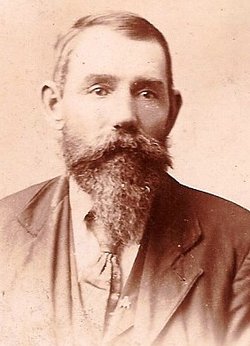Babcock, William Henry
 William Henry Babcock (1849-1922) was born in St. Louis, Missouri and studied law, after which he took up newspaper work. He later moved to Washington, D.C. where he practised law.
William Henry Babcock (1849-1922) was born in St. Louis, Missouri and studied law, after which he took up newspaper work. He later moved to Washington, D.C. where he practised law.
Babcock was also a novelist and poet as well as the author of a number of works [069]+[070]+ on the Atlantic and pre-Columbian links between northern Europe and North America. His book Legendary islands of the Atlantic [071]+ is of particular interest. He refers to Atlantis but expresses the opinion that Plato’s story is a romantic combination of ancient legend together with an account of the defeat of the Persian army by the Athenians.>In 1913, Babcock published Early Norse Visits to North America [069] in which he offers evidence of early Scandinavian visitors and returned to the subject in a 1921 paper entitled Recent History and Present Status of the Vinland Problem(b).<
In the May 1917 issue of The Geographical Review, Babcock wrote an article entitled ‘Atlantis and Antillia’ commenting on the views of Pierre Termier(a).
Referring to the sinking of Atlantis, Babcock wrote: “Moreover, the sudden submergence of so vast a region as the imagined Atlantis would be an event without parallel in human annals, besides being pretty certain to leave marks on the rest of the world which would be recognised even now.” He also remarks that regarding Plato’s story: “certainly no one will go the length of accepting it as wholly true as it stands.” Babcock’s views were quite understandable in view of Plato’s incredible dimensions for the island of Atlantis, namely 3,000 x 2,000 stades for the plain alone apart from its surrounding mountains.
[069]+ https://archive.org/details/earlynorsevisit01babcgoog
[070]+ https://archive.org/stream/jstor-207330/207330?ui=embed#page/n8/mode/1up
[071]+ https://archive.org/stream/jstor-207330/207330_djvu.txt
